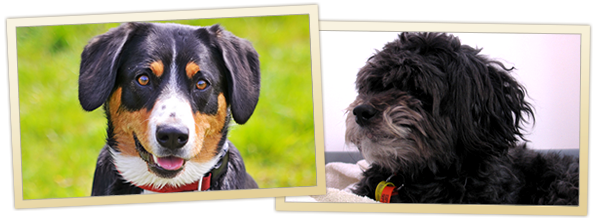Nature's Plan
Animal Planet

What is best nutrition for dogs and cats?
 To
distinguish what is important to your pet’s health and diet, we
first need to discuss the six basic nutrient classes, which are
proteins, carbohydrates, fats, vitamins, minerals and water. These
nutrients help dogs and cats meet their daily needs for overall
well-being.
To
distinguish what is important to your pet’s health and diet, we
first need to discuss the six basic nutrient classes, which are
proteins, carbohydrates, fats, vitamins, minerals and water. These
nutrients help dogs and cats meet their daily needs for overall
well-being.
Proteins
Essential for pet’s growth and energy, proteins are the basic building blocks for cells, tissues, enzymes, hormones and antibodies. They can be obtained from a number of sources, but the best sources are from animals such as chicken, turkey, and salmon because they contain all necessary amino acids that your pets require. Amino acids are the building blocks of proteins. Non-essential amino acids can produce naturally in sufficient quantities by your pet, but essential amino acids cannot be manufactured by the body in sufficient quantities and must be received from the pet's diet.
Carbohydrates
Another key source of energy for dogs and cats is carbohydrates. Whole grains, such as whole ground brown rice, whole ground barley and oats, are all great low-fat sources of highly-digestible complex carbohydrates. Whole grains are also a rich source of dietary fiber—both soluble and insoluble—which is crucial for healthy intestinal function, and they are also helpful with the common problems of constipation caused by a diet lacking in fiber.
Fats
Fats are an important and necessary component to a healthy diet, and they play a vital role in maintaining healthy skin and coat, promoting healthy cell function, and producing some hormones. They are also required for digestion and absorption of vitamins such as vitamins A, D, E, and K. That’s why the appropriate proportion of fats is always found in quality, healthy pet food. Dogs and cats can produce some of the fatty acids they need, but some fatty acids, called essential fatty acids, can only be obtained through their diet.
Essential fatty acids are divided into two groups—Omega-3 and Omega-6 fatty acids. Ingredients such as chicken fat and sunflower oil are great sources of Omega-6 fatty acids, while flax seed and salmon oil are important sources of Omega-3 fatty acids.
Vitamins and Minerals
Here are some of the key vitamins your pet needs on a daily basis:
Vitamin A — essential for healthy bones, teeth, coat, skin, eyes, and mucous membranes. It is an oil soluble vitamin and is important to the immune system especially for respiratory infections.
Vitamin B12 — necessary for growth, and used to treat some types of nerve damage and pernicious anemia.
Vitamin C — a potent antioxidant and immune booster that has been known to help prevent bacterial, viral and degenerative diseases such as arthritis, diabetes, auto immune disease and cancer. A water soluble vitamin, Vitamin C can lose potency when exposed to high temperatures.
Vitamin D — promotes skin, bone, connective tissue and heart health. It is necessary for the proper absorption and utilization of calcium and phosphorus.
Vitamin E — a potent antioxidant that helps improve circulation and cardiac output.
The higher quality ingredients in the best dog food and cat food also provide your pet with some of the minerals they need—things like manganese, iron, potassium, copper, and calcium and phosphorus.
But, because these minerals are hard for dogs and cats to absorb, it's important their food be supplemented with "chelated" minerals. A chelated mineral is one that is "attached" to easily absorbable amino acids, which means they will get into your pet's bloodstream more readily. Chelated minerals, like the ones found in the best dog food and cat food, are up to four times more readily absorbed than commonly used inorganic minerals.
Water
Water is the lubricant to enable the body’s chemical reactions to produce energy, so it is truly a critical nutrient that’s often taken for granted. Food may be a part of the water source, because canned food and dry food have up to 78% and 10% moisture respectively. Like us, pets require accessible clean water at all times.
Quality of the Ingredients
Getting of the right mix of nutrients is important for your pet’s well-being, but equally important is the quality of ingredients from which these nutrients are derived. But are pet food brand's ingredients as healthy as they claim to be? Chicken fat, for example, is a better quality source of essential fatty acids than generic "animal fats", because animal fats can be from anything. Real chicken is a higher protein source than chicken or other animal by-products. Remember to read the food label and see for yourself what’s really in the food you’re giving to your pet.
In This Section
Our Philosophy
Ingredients
Pet Food Label